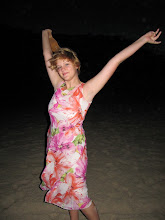1,500 families, forcefully relocated from their inner city slum, to an area with no access to healthcare, education, sewage pipes or clean water. It sounds like a nightmare, but it was very much a reality. These families were moved to a plot of land that became known as the ''new Andong Village'' and is about an hour from the city in a Range Rover over bumpy roads and dirt tracks.
The families lost their major sources of income as day-laborers in the city. Sure, most of them made only just enough to feed their families, but at least they had enough corrugated iron for a roof, and enough rice. So why would the Government do that? Because their existence is an eyesore to the tourists, businessmen and upper class of Cambodia.
This is possibly the worst excuse ever to reclaim valuable land near the Australian embassy in Phnom Penh. We visited the land they came from and yes, now its just an empty field of grass surrounded by barbed wire to stop desperate families from Andong trying to become squatters in the patch of land that used to be their home
Land title is a major issue in Cambodia after the fall of the Khmer Rouge. People were given the right to live wherever they settled, but never given a piece of paper saying it is theirs. These families owned the land, but couldn't prove it, so the Cambodian Government took full advantage of it by forecefully relocating them, using teargas to force them onto buses to be shipped off to a new block of land, where they were given a 3m x 3m block of land per family to build a house. They were given land, but no materials, no money, no access sanitation infrastructure, no school, no electricity, no running water etc.
These families lived under tents for years.
We were fortunate enough to be in contact with Abraham, who has become something of a hero to me, as he has worked with the village to create a basic school, get electricity for the village, build houses, and ensure that international medical teams do outreaches in the community. There is a sewing school for the women of the village, and they are working on getting pipes put in to deal with the flooding problem, some of which have been built in time to help Andong cope with the wet season. This time last year, the village flooded, but in some parts of the village new piping has resolved this issue.
For a few days, Leigh and I helped with the construction of the new school, and teaching English at the temporary thatched hut school. The kids suffered from various diseases, including major skin diseases. Health and Sanitation was virtually non-existent, and the 3 water pumps provided water from a pond covered in slime and waste.
It was certainly an interesting case study in holistic development, and reminded us that we cannot focus simply on ''education'' or ''health'' or ''employment prospects''. It was also interesting to see the divide between rich and poor that already exists, even though all families started with literally nothing just 4 years ago. Some families have a motorbike to get in to the city for work, and even a small radio or tiny second-hand tv, while some people still lived under a piece of tarpaulin.
Clear disparities exist between those who are given the opportunity to go into the city, those who received micro loans for selling basic food in the village, and those who are too sick or unable to work for various reasons. In a community like Andong, poor sanitation and minimal access to health care means its not hard to be too sick to work quite often.
The few days we journeyed to Andong challenged us culturally, linguistically, and emotionally.
For more information, check this out: http://www.photosensibility.com/portfolio/andong/
